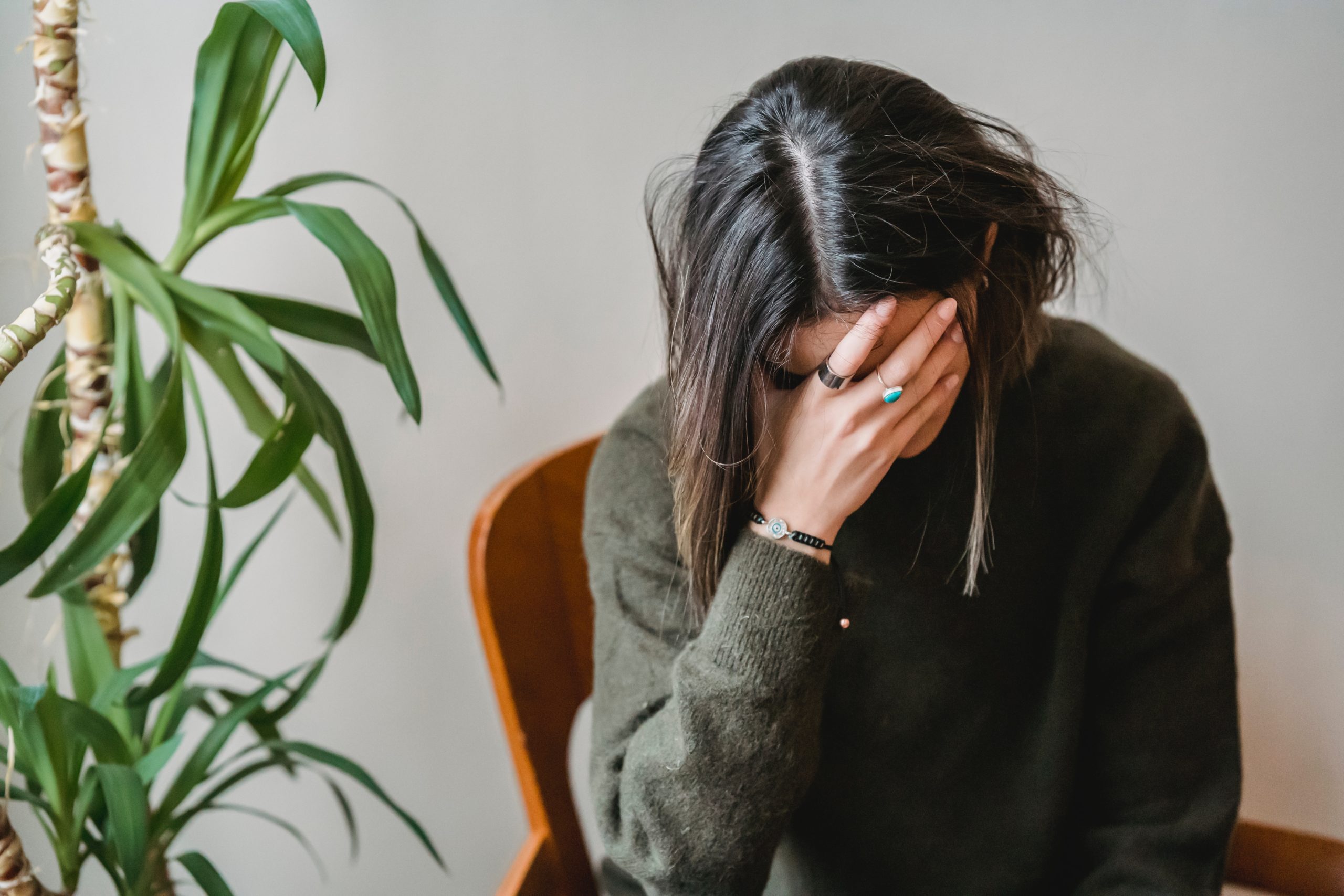Anxiety affects over 40% of people in the US, 24% of them women. Although anxiety can sometimes come and go and is a natural part of life, understanding how to effectively tackle anxiety (and knowing when you may need professional support) is important to ensure that it doesn’t impact on your health and quality of life in the long-term.
Why is anxiety such a pervasive issue in modern society?
Anxiety in itself is not a bad thing – it’s actually a natural response between our brains and bodies to help us stay alert in the face of a potential threat. As we’ve evolved however, anxiety has become an issue as more non-life-threatening situations trigger an anxiety response. Today’s busy lifestyles and constant stimulation from many different sources have effectively tricked the brain into thinking we are in near-constant danger, when we are not.
 For women especially the demands of society can be difficult to meet, as we’re expected to be and do many different things all at once. Always ‘on’, expected to be constantly available and over-stimulated as a result of the many devices we have at our disposal, many aspects of modern life actively feed anxiety at a neurological and emotional level. As life continues to become more complex and demanding, anxiety levels go up.
For women especially the demands of society can be difficult to meet, as we’re expected to be and do many different things all at once. Always ‘on’, expected to be constantly available and over-stimulated as a result of the many devices we have at our disposal, many aspects of modern life actively feed anxiety at a neurological and emotional level. As life continues to become more complex and demanding, anxiety levels go up.
Anxiety is also linked with our physical health – and can be influenced by our hormone levels, diet and the consumption of alcohol and caffeine. When we add these factors up, it’s easy to see why anxiety is affecting more people each year in increasingly high numbers.
Will anxiety go away without treatment?
Understanding the answer to this question starts with finding the source of your anxiety, and considering how long it has been going on for.
Locating an effective treatment for anxiety also depends on the cause (if you can identify a direct influence, sometimes feelings of anxiety are more generalized). Lifestyle changes and mindfulness alone might be enough if your anxiety is linked to a temporary event or situation – but if you’ve been living with anxiety a long time, you will likely need a multi-faceted approach coupled with some external support. Severe symptoms of anxiety such as panic attacks, avoiding certain people and situations and feeling depressed and despondent can all impact upon our health over time and make accessing support or doing things to help yourself feel more difficult, so having some expert guidance can be valuable.
The source of anxiety can be split into two parts – physical and emotional. Sometimes the source of anxiety is solely to do with something going on for us in our lives which affects us mentally. At other times, our diet and lifestyle choices are directly influencing the development of anxious feelings. Sometimes it can be both.
Once you have considered these various factors in the development of your anxiety, you can begin to work out what you can do personally to relieve symptoms and start to feel calmer and more in control of how you feel.
Support for temporary anxiety
If you’re feeling anxious ahead of an important upcoming event such as a wedding, relocation or a presentation at work. This is completely normal, and it will likely pass. However, dealing with anxiety in an effective way now can help to prevent an anxiety response occurring every time a stressful trigger arises.
For relief from short-term anxiety, try:
*Moving more – gentle exercises such as yoga and Pilates can help to soothe and alleviate general anxiety
*Journaling
*Breathwork
*Meditation
*Self-soothing
*Talking to a therapist, or trusted friend/family member about how you’re feeling to rationalize anxious thoughts
*Cut out alcohol and caffeine and drink plenty of water and/or herbal teas
*Cut out sugar and processed, refined foods and up your intake of nutrient-rich fruit and vegetables to support brain health
Support for chronic anxiety
When anxiety becomes chronic, it’s been a part of your daily life for a long period of time. For people with chronic anxiety, living with the condition almost feels ‘normal’, although it is still exhausting and debilitating and can affect quality of life, as well as having an impact on physical health.
You may need to consider talking therapies or hypnotherapy to help you work through some of the issues in the background that may be feeding your feelings of anxiety.
For long-term anxiety, you can try:
*Talking therapies with a registered therapist specializing in anxiety
*Anxiety support groups (online or in-person)
*Elimination techniques (removing triggers whilst you acquire the tools to respond to them, or moving away from people or situations that feed anxiety)
*Forming new daily habits, such as meditation and breathwork first thing in the morning
*Ensuring your diet and lifestyle aren’t affecting anxiety levels – such as monitoring blood sugar levels and drinking enough water
 Unfortunately there’s no ‘one size fits all’ remedy for anxiety – but however long you’ve been feeling this way, it’s best to look for ways to understand why you feel anxiety and implement support both from yourself and external sources to help you to feel better. Often, short-term anxiety can develop if left without any treatment or attention – so learning to deal with low levels as and why you identify them can help to prevent anxiety becoming a bigger issue in your life.
Unfortunately there’s no ‘one size fits all’ remedy for anxiety – but however long you’ve been feeling this way, it’s best to look for ways to understand why you feel anxiety and implement support both from yourself and external sources to help you to feel better. Often, short-term anxiety can develop if left without any treatment or attention – so learning to deal with low levels as and why you identify them can help to prevent anxiety becoming a bigger issue in your life.
For soothing support with daily anxiety, try our Serenease blend, designed to promote feelings of calm and emotional wellbeing.






